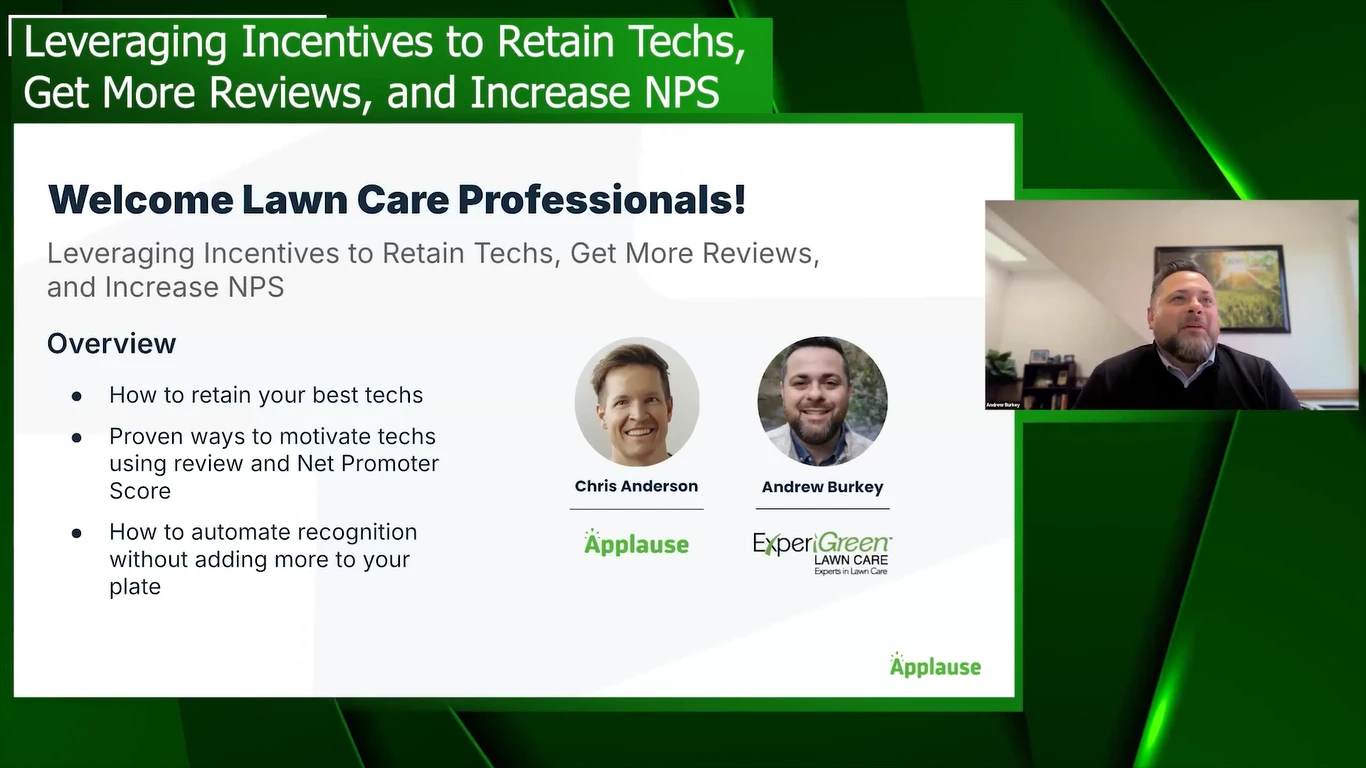Sales Call offers landscapers Marty Grunder’s practical and tactical advice on how to improve their sales and marketing, and grow their company’s bottom line.

First off: Congratulations to everyone reading this. You’ve made it halfway through the 100 days of hell for landscape pros. We’re all still in the thick of long days, selling jobs, managing client demands and motivating our teams, but we’ve rounded the corner and can see less stressful times ahead. Hold on and hang in there!
If you’re like me, it’s now, during our busiest season, when you’re at greatest risk of losing sight of your vision. You’re running nonstop from early in the morning until late in the evening and if something has to give, it’s going to be your long-range plan.
Most of us, in fact, won’t even realize we’re forfeiting our vision for short-term goals. Instead, we’ll delay firing a bad apple because we think we can’t afford to let a truck sit idle. We’ll cancel and reschedule, on an endless loop, that marketing planning session we know we need to have. We’ll feel our clothes tightening and tell ourselves we’ll get back to the gym in the fall. The list goes on and on.
But the truth is the only way to see your vision through is to remain laser-focused on it, all year through. And for that, you need to hold yourself accountable. As the late, great agriculturist and educator George Washington Carver said, “Ninety-nine percent of all failures come from people who have a habit of making excuses.”
Stop Making Excuses.
A moment of reckoning, folks. Spring and summer are never not going to be crazy for landscape pros. That’s just the inescapable nature of the beast. The trick is in how you attack the beast.
1. Make yourself accountable to someone.
If you’re a business owner, who really are you accountable to? Your bank? Your spouse? It’s true that both expect a lot of you and will quickly let you know if you don’t come through, but they’re focused on outcomes, not inputs. Neither one is going to check in with you to see if you followed through on that marketing meeting you said you were going to have. Neither one is going to get into the weeds of your day-to-day operations and ensure you’re remaining focused on the right priorities for the long run.
Instead you need to find a mentor, deputize a team member or join a peer group that will force you to have regular check-ins. In recent years my consulting team and I have shifted the majority of our coaching work from the one-on-one to peer-group model. Why? Because that’s where we’ve seen the biggest returns for our clients. In our experience, there’s simply no match for the kind of accountability, tactics-sharing, and camaraderie that a group of growth-minded professionals can provide each other when a peer group hits its stride. Couple that with a coach who’s been where you are and gotten where you want to go, and you simply won’t be able to lose sight of your long-term goals.
2. Listen to honest feedback, especially when it’s not what you want to hear.
We all love having our praises sung. It’s human nature. And if you’re a business owner, you’re probably used to being flattered by your team. That’s human nature, too – your folks want to get paid and promoted! That’s why they show up every day and smile at you (and you thought it was because you’re so charming); that’s also why the first thing most people do when they win the lottery is quit their jobs.
Now it’s true the most successful companies cultivate a culture in which team members feel empowered and encouraged to speak their minds. That’s important, but it’s no substitute for the kind of honest feedback someone who’s not beholden to you for a paycheck can provide. Find that person or persons, and then listen to them. You may not like what they have to say, but if they’re worth their salt, their impartial insights will help you grow.
3. Step back to step up.
This will sound counter-intuitive, but sometimes the best thing you can do to stay true to your long-range plan is take an intentional step back from it. Distance brings perspective and a forced break from routine. You may think you can’t possibly take a few days off right now, but if you’re so stressed out you can’t be effective, you need to. Go away for a weekend, hit the reset button and come back recharged and ready to see your long-range plan through.

Explore the July 2017 Issue
Check out more from this issue and find your next story to read.
Latest from Lawn & Landscape
- PERC helps debut propane direct-injection fuel system at ACT Expo 2025
- Retargeting Ads – A Secret Weapon for Growing Your Lawn Care Business
- Leading a growing company
- Project EverGreen launches Clean Air Calculator
- Rain Bird acquires smart lawn care company OtO from Toronto
- PBI-Gordon names Marvin as VP of research and development
- Mean Green rolls out Vanquish Autonomous mower
- Focal Pointe launches new podcast series





